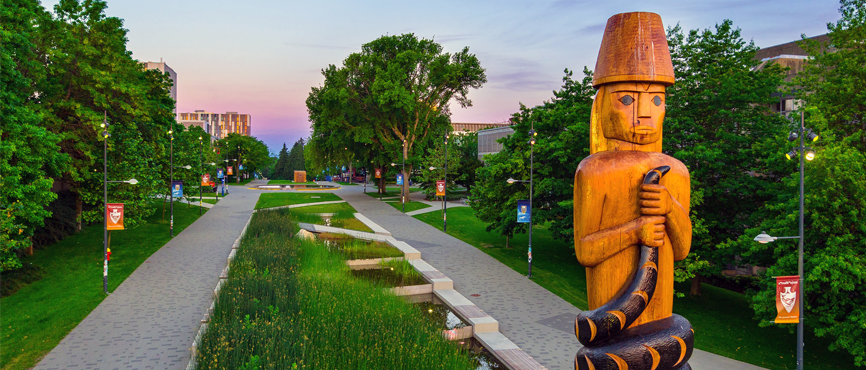
Director of the UBC First Nations House of Learning
Linc Kesler speaking on land acknowledgement at UBC
At UBC you’ll often hear or read that the university or a department, unit, or faculty is situated on the traditional, ancestral and unceded territory of Indigenous peoples.
Over the past decade, this land acknowledgement has become common practice at university events, business meetings, and in official documents. Don’t be surprised to hear it spoken by President Ono and other senior administrators, professors, or students.
More than words
It’s important that this recognition of territory and our relationship with Indigenous people doesn’t appear as just a formality. Take a moment to appreciate the meaning behind the words we use:
- Traditional: recognizes lands traditionally used and/or occupied by the Musqueam people or other First Nations in other parts of the country.
- Ancestral: recognizes land that is handed down from generation to generation.
- Unceded: refers to land that was not turned over to the Crown (government) by a treaty or other agreement.
How do we do land acknowledgement?
To offer a land acknowledgement on the Vancouver Campus, you can say:
- University of British Columbia, Point Grey Campus (Vancouver)
I would like to acknowledge that we are gathered today on the traditional, ancestral, and unceded territory of the Musqueam people. - University of British Columbia, Okanagan Campus (Kelowna)
I would like to acknowledge that we are gathered today on the traditional, ancestral, and unceded territory of the Syilx (Okanagan) peoples. - University of British Columbia (Robson Square, Vancouver)
I would like to acknowledge that we are gathered today on the traditional, ancestral, and unceded territory of the Coast Salish Peoples, including the territories of the Musqueam, Squamish, and Tsleil- Waututh Nations.
You can also offer a land acknowledgement for a virtual gathering where people may be joining from anywhere in the world. As the host, give recognition to the land that you, individually, are on and acknowledge that many others may be on different territory. If possible, invite others to offer their own land acknowledgements. Here is an example:
- Virtual meeting
I would like to acknowledge that UBC’s Vancouver Point Grey campus is situated on the traditional, ancestral, unceded territory of the Musqueam people. I would also like to acknowledge that you are joining us today from many places, near and far, and acknowledge the traditional owners and caretakers of those lands.
Take some time to learn about the history of this land and to honour its original inhabitants. Learn more from the UBC Indigenous portal, UBC Libraries, or the UBC Indigenous Peoples language guide.